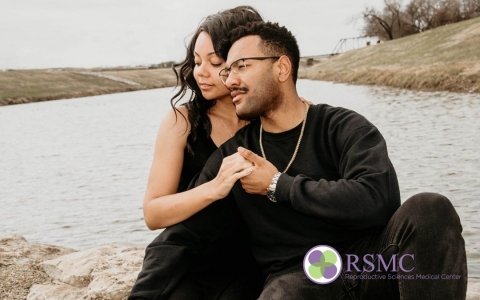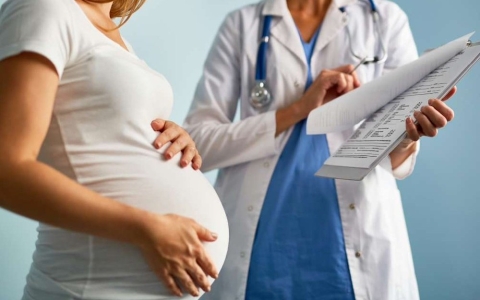How do lesbian couples have children? A quick guide to LGBTQ+ IVF baby
Can LGBTQ families undergo IVF treatment? Let us introduce you to the challenges faced by LGBTQ couples in terms of reproduction and provide information related to LGBTQ IVF treatments.
Article Contents:
- Why do LGBTQ families need IVF? Challenges faced by diverse gender families
- Is IVF legal for LGBTQ families in the United States?
- Journey of a Great Journey: Same-sex couples want to have children too? The path to parenthood for a gay couple in the United States
- Recommended pre-IVF check-up for LGBTQ families
- Cost and process of LGBTQ IVF
- 4 common questions about LGBTQ IVF
- Supporting LGBTQ families: RSMC creating high pregnancy rates through IVF
- RSMC Reproductive Medicine Experts

Why is LGBTQ IVF needed? Challenges faced by diverse gender families
On May 17, 2019, Taiwan made history by becoming the first Asian region to legalize same-sex marriage. However, many Asian countries still prohibit same-sex couples from getting married and utilizing IVF techniques for reproduction. The availability for same-sex couples to undergo IVF treatment and have a baby through sperm or egg donation varies across different countries. As a result, many LGBTQ couples have to travel abroad, particularly to the United States, in search of hope and options for starting a family.
Is it legal for LGBTQ families to undergo IVF in the United States?
Currently, in the state of California where RSMC is located, it is legal and protected by U.S. law for same-sex couples to undergo various forms of IVF treatment. This includes gestational surrogacy with egg donation for male same-sex couples, sperm donation for female same-sex couples, and even single-parent IVF for both men and women, as long as the doctor deems it feasible. The legal framework in the United States ensures the establishment of parent-child relationships in these cases. Below, we will share the real-life experience of a married gay couple.
Mental Journey: Same-sex couples want to have children too? The path to parenthood for a married gay couple in the United States
Da Jia Yu Tou is a Taiwanese married gay couple who have been together for 14 years. They thought they would never be able to become fathers and chose to get married on Father's Day. However, upon learning about the option of legal surrogacy in the United States, they embarked on a challenging but fulfilling journey. This video sheds light on the difficulties faced by gay men in Taiwan when it comes to having children and the emotions involved in seeking hope overseas. We hope that all countries will gradually recognize the reproductive rights of LGBTQ individuals and create a society that embraces diversity and inclusivity. (Video by Public Television Service)
Recommended check-up list before IVF | Important information for LGBTQ families.
If you and your partner are planning to expand your family through IVF, it is advisable to contact us (Line/WeChat: rsmctw) (WhatsApp : +1 858-342-6046) for recommendations on LGBTQ-friendly reproductive medicine centers. Before proceeding with IVF, these following examinations are typically recommended. This will allow the doctor to consult with you and devise the best fertility plan.
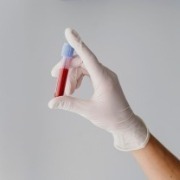
【Examination items for biological women】
It is advisable to perform the following examinations on days 1-3 of the menstrual cycle. If that is not possible, you can do them on any day and indicate which day of the menstrual cycle it is and how many days of bleeding have occurred.
-
Ultrasound: This allows observation of the uterus for the presence of fibroids and provides information about the shape, size, position, and endometrial thickness.
-
Blood Tests (no fasting): The following values should be examined, including FSH, LH, E2, Testosterone, AMH, TSH, Prolactin, and P4.
-
Blood tests for infectious diseases: These tests include HIV (HIV 1+2), Hepatitis B (HBsAg, HBeAb), Hepatitis C, syphilis, gonorrhea, Chlamydia, cytomegalovirus, rubella virus, and varicella-zoster virus.
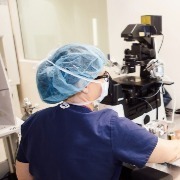
【Examination items for biological men】
Please abstain from ejaculation for 2-5 days. You will be asked to provide a semen sample through masturbation at the clinic. If you choose to collect the sample at home, it must be returned to the clinic within the specified time limit.
1.Semen Analysis
Sperm Concentration:
The normal amount of ejaculation is between 1.5 and 5.5 milliliters (c.c.). It's important to note that a low semen volume is different from a low sperm count. The former refers to a low total volume of sperm and seminal fluid secreted by the reproductive glands, while the latter refers to a low number of sperm. For a normal semen sample, it should contain at least 15 million sperm per milliliter (c.c.).
Sperm Morphology:
Normal sperm morphology refers to sperm with an oval-shaped head and no abnormalities in the neck, midpiece, or tail. Having at least 40% of sperm with normal morphology is considered normal. If more than 50% of the sperm are abnormal in shape, it is classified as abnormal.
Sperm Motility:
Sperm motility refers to the ability of sperm to move. It is generally categorized into four grades. Normal sperm motility should have at least 50% of sperm classified as grade a or b, or 25% classified as grade a. If the motility is less than 40%, it indicates that the sperm may have difficulty swimming to the fallopian tubes and fertilizing an egg.
Sperm Motility Grading:
Grade Description
a - Rapid Progressive
b - Slow Progressive
c - Non-Progressive
d - Non-Motile
2.HIV (HIV 1+2), Hepatitis B (HBsAg, HBeAb), Hepatitis C, Syphilis, Gonorrhea, Chlamydia, Cytomegalovirus, Human T-cell Leukemia Virus (HTLV 1+2).
If it is not possible to complete the HTLV 1+2 test in your country, it can be done in the United States.
LGBTQ In Vitro Fertilization (IVF) Costs and Procedures
Compared to lesbian couples who can conceive naturally, gay couples often face higher costs as they require the assistance of a surrogate mother. Some of them may take risks by resorting to surrogacy in countries where it is illegal, which can lead to complications. It is recommended that whether it's sperm or egg donation for IVF, or surrogacy, individuals should consider visiting the fully legal RSMC in California, USA. This center not only has its own egg bank and surrogacy mother department, but also maintains strict control through physical and psychological examinations, background checks, and expert management by reproductive medicine specialists from departments such as obstetrics and gynecology, reproductive treatment, and infertility. Additionally, professional lawyers handle parental rights, and there are full Chinese medical interpretations throughout the entire process, providing you with comprehensive and reassuring services for your journey towards parenthood.

【Procedure and Cost of Lesbian Couples Seeking Sperm Donor IVF in the US】
There are two main approaches for lesbian couples seeking IVF with a sperm donor in the United States. One option is to freeze eggs in a country that allows international transportation of reproductive cells, and then have the eggs shipped to the US. Once in the US, the eggs can be combined with donor sperm and implanted as embryos, which is legal in the US. The entire process, including egg freezing in Asia➜international egg transportation➜sperm donation➜embryo creation➜ implantation, typically takes about 5-6 months. However, the stay in the US is only required for approximately 4-5 weeks, after which you can return to your home country.
The egg freezing process is relatively straightforward. If you wish to assess your own situation beforehand, you can visit an infertility clinic or reproductive center in the first three days of your menstrual cycle for an examination. If you are deemed suitable for the procedure, you will begin injections starting from the third day of your cycle. During the process, you may need to visit the clinic 2-3 times for the doctor to monitor your response to the medication and adjust the dosage if necessary. Generally, the entire treatment only takes about two weeks. After the final trigger shot, the egg retrieval will be scheduled within 36 hours. The retrieved eggs will be frozen in liquid nitrogen at a temperature of -196°C, with a high survival rate of over 95% and no quality degradation due to freezing.
Alternatively, if you choose undertake the entire IVF process, from ovarian stimulation to implantation in US. If it is an A-egg and B-pregnancy can be completed directly in the US within 1-2 months. If you opt for IVF using a sperm donor, the cost is approximately $40,000 USD.

【Procedure and Cost of Gay Couples Seeking Egg Donor IVF and Surrogacy in the US】
Gay couples generally opt to directly undergo the IVF and surrogacy process in the US. This choice helps save on the cost of international sperm transportation, making the overall expenses more affordable. If the sperm is not transported, a stay of 5 days in the US is required. However, if sperm international transportation is involved, there is no need to travel to the US during the entire process. Instead, the couple can visit the US to bring the baby home after the birth. The entire process takes approximately 1 to 1.5 years. Due to the relatively high costs (primarily the expenses for the surrogate mother and egg donor), it is also possible to consider freezing sperm or embryos for future use, providing flexibility. The cost of egg donor IVF and surrogacy is approximately $190,000 to $200,000 USD.
For more information, read: How to Choose a Legal Surrogacy Agency?

Four Common Questions about LGBTQ IVF Babies
Q1: Can both partners in a same-sex couple provide sperm or eggs?
The openness of reproductive policies in the United States and the flexibility of parental registration make it possible for both partners in a same-sex couple to contribute sperm or eggs. For lesbian couples, the most common approach is for Partner A to provide eggs while Partner B carries the pregnancy. If there is no specific preference regarding who retrieves the eggs or becomes pregnant, both partners can undergo fertility evaluations, and the most suitable candidate can be selected for egg retrieval or pregnancy. For gay couples, since surrogacy is often involved, unless there is a specific designation for sperm donation, it is common for the partner with better sperm quality to provide the sperm. There are also cases where both partners provide sperm and create a set of twins.
In the United States, to avoid the high medical expenses associated with premature delivery of twins and to ensure the health of both the surrogate mother and the fetus, single embryo transfer is typically preferred during surrogacy. Although some surrogate mothers may be willing to carry twins, most clients choose to have two separate surrogates each carrying one baby. In such cases, the sperm from each partner can be used to create separate batches of embryos, with the best-quality embryo transferred to each surrogate's uterus.
Q2: Can recipients of sperm donor IVF in the US see the donor's appearance and detailed information?
In many countries, laws prohibit the disclosure of detailed information about sperm donors to recipients, allowing only objective criteria such as height, weight, and blood type to be shared. Recipients are generally unable to see the donor's photos. However, in the United States, recipients can access childhood photos and basic information about the sperm donor. They can also learn about the donor's educational background, professional achievements, areas of expertise, and more through detailed descriptions, enabling them to assess whether the donor aligns with their ideals. Similarly, the privacy of both donors and recipients is protected, and they remain anonymous and unable to contact each other. Formal legal documents are signed to ensure that the donor relinquishes parental rights, confirming that the future child belongs entirely to the recipient.
Q3: Can recipients of egg donor IVF in the US see the donor's appearance and detailed information?
In the United States, recipients of egg donor IVF can access photos of the adult egg donor, as well as information such as height, weight, educational background, interests, and even the health and survival status of their immediate blood relatives. Recipients may also have access to IQ tests or subjects in which the donor excels for consideration.
Q4: What if the budget is insufficient during the treatment?
RSMC is a reputable medical center that allows patients to pay for each phase of the treatment separately. You can determine when to proceed with the next step based on your personal circumstances, without the need to complete the entire treatment at once. For example, for gay couples requiring surrogacy, you can start with sperm retrieval and egg donation to create frozen embryos, which can be used in the future when you have sufficient funds to hire a surrogate. Our consultants are full-time employees, and there are no hidden fees in the quoted prices. Moreover, everything is contractually guaranteed to ensure our clients are at ease.
Supporting LGBTQ Families | RSMC Achieves High Success Rates in IVF
RSMC is equipped with surrogate mothers from the top three legal surrogacy centers in the United States, as well as a diverse egg donor database representing various ethnicities. We have a rich and high-quality inventory of Asian egg donors and a sperm bank, successfully helping thousands of LGBTQ families fulfill their dreams of having children. Besides, we offer four major advantages that will keep your mind on when choosing our services.
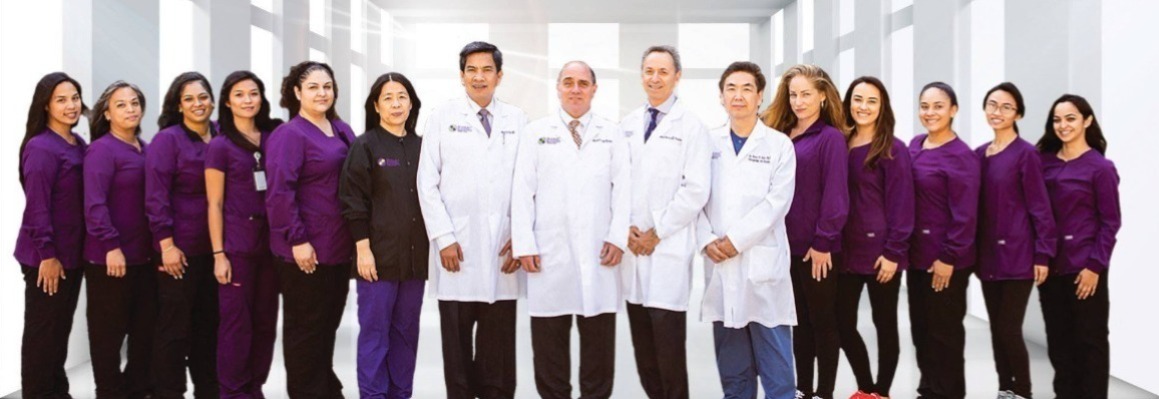
1.Support for Same-Sex Couples in Pursuit of Happiness
From the top three egg donor banks in North America to our surrogate mother center, it is evident that RSMC has been committed to resolving the fertility challenges faced by LGBTQ families.
2.Abundant Clinical Experience and Attentive Service
With 28 years of extensive clinical experience in reproductive medicine and infertility treatment, RSMC is staffed by top fertility specialists with over 30 years of experience. We offer comprehensive management of AIG insurance providers and have professional lawyers to handle all legal documents required for obtaining a baby's birth certificate. From the initial consultation to the birth of your baby, our professional team will assist you every step of the way. We focus on every detail only for the best possible experience.
3.Leadership by Multiple Reproductive Medicine Experts
Dr. Harari, the director of RSMC in the United States, was the the chairman of the San Diego Obstetrics and Gynecology Association. Dr. Ho,is a renowned fertility expert with a background in Asian political and royal medical services. In addition, we have experts such as Dr. Oum who specialize in the latest advancements in IVF, including PGS (preimplantation genetic screening) and PGD (preimplantation genetic diagnosis) of embryos, as well as ICSI (intracytoplasmic sperm injection). These reproductive medicine specialists have received recognition and praise from the American Society for Reproductive Medicine.
4.Achieving High Success Rates in IVF
The success of IVF largely depends on the quality of the laboratory. The embryo laboratory at RSMC has been accredited with the highest level of certification, CPA, ensuring high fertilization rates of eggs. We also utilize PGS to screen out chromosomal abnormalities caused by advanced maternal age, selecting the highest quality embryos to enhance pregnancy rates. Currently, our average pregnancy rate for IVF is over 80%, and for egg donor IVF, it exceeds an outstanding 87%.
If you are interested in our services or would like to schedule a free video consultation with our U.S. doctors, please contact us or add us on Line / WeChat: rsmctw. You can also reach us via WhatsApp : +1 858-342-6046. Our team is dedicated to providing you with personalized assistance.
Doctor Information
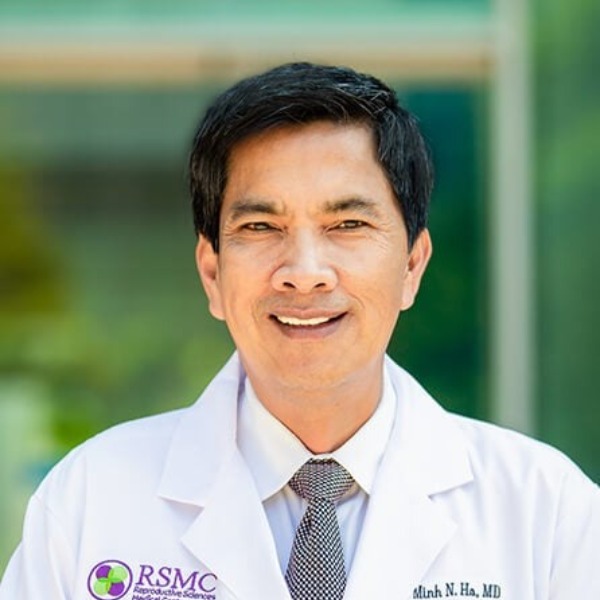
RSMC Reproductive Medicine Specialist
Dr. Minh N. Ho
RSMC is a reproductive endocrinology and obstetrics/gynecology physician. He is the first Asian-American reproductive specialist certified by the American Society for Reproductive Medicine. He is highly respected in the field of infertility treatment for Asian women of advanced age and is recognized as the chief fertility specialist designated by many dignitaries. He has received honors such as being recognized as a top gynecologist in the United States, a top physician in San Diego, a top reproductive specialist in the world according to the U.S. News & World Report, and being recommended as a physician by the U.S. Healthgrades.
Other
-
2024/11/18ivf
What is a Uterine Polyp? Does It Affect Fertility?


